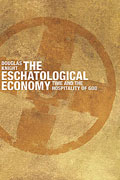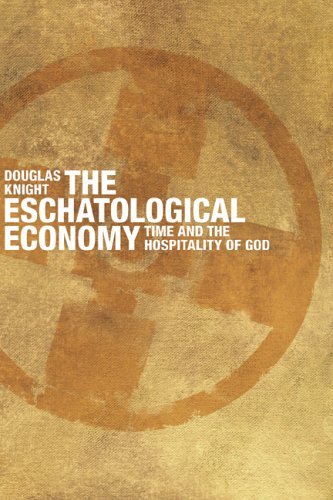Now and again, there appears in all fields of study a work that offers its readers a radical reconception of the basic subject matter in question. In the case of Douglas Knight’s The Eschatological Economy, the term ‘radical’ is especially apt because, rather than seeking something novel, Knight returns us to the roots of Christian theology, to the basic story of humanity laid out in the biblical narratives. By returning to the roots Knight’s intent is simply to lay bare the ‘main story’ of the biblical narratives. That story is, he believes, an Irenaean story about God’s nurturing and maturing of humankind, within which Augustine’s account of the fall of Adam is not the main thing but only a subplot (p. 14). The basic thesis of the book is that the divine economy is properly understood as an eschatological economy whose content is determined from the end, rather than from the beginning. It is determined, that is, not by what humanity does before God in its infancy but by what God ordains for humanity at its end. God’s purpose for humanity – the freedom and full form of the creature in relation to God – is established and made known in Christ the one true Israelite who takes up and fulfils Israel’s appointment as God’s servant. The good news, accordingly, is that God comes to humankind and in the course of this coming we are enabled to grow up in love for God and for his creatures. That process of formation is delayed though not defeated by sin and rebellion, while time is conceived as God’s gift to us allowing the process of formation to be worked through.
The reorientation involved in the conceptual shift from a protological to an eschatological economy opens up new vistas on the biblical story that Knight explores with impressive creativity and insight. Drawing especially on John Zizioulas and Robert Jenson, and in constant dialogue with the contrary assertions of modernity, Knight traces in the biblical narrative an account of human persons in constitutive relationship. Persons are fundamental, Knight contends, and are sustained only through relationship with other creatures and by the ongoing relationship of the Creator with the creation. Such relationship is not a status but a project and so ‘an account must be given of the place and work into which persons are to grow, and so of the ongoing co-labour of creation’ (p. xvi). The freedom of the creature is the work of creation. This is God’s work and ‘very subordinately it is the task into which God introduces human beings’ (p. xvi). Thus does Knight develop, in opposition to the pervasive individualist and monist ontology of modernity, a ‘participative ontology’ in which we learn and grow into fully human being. These themes will certainly be familiar to readers of recent work in theology.
Knight’s fascinating contribution to our consideration of such themes consists in his development of them through sustained and detailed attention to Israel’s story. The election of Israel, Knight explains, is the means by which God introduces human beings to the co-labour of creation and discloses what it means to develop competence in the life that God shares with us. In communion with God, Israel learns and practices the life God gives and thus becomes, through liturgy and ministry, steward of and witness to God’s purposes for his creatures. Knight offers us a thoroughly trinitarian construal of Israel’s task. Israel’s role is that of the Son. The Father speaks to the Son and the Son hears and receives his speech. By addressing Israel in this way God draws Israel into the Sonship of Christ. Israel’s being is constituted by its incorporation into the life of the Son. All that goes on in the temple is the expression and demonstration of Israel’s appointment to Sonship. There Israel exercises the offices of story-telling, intercession and sacrifice. The high priest enacts these offices for Israel and, just so, all Israel enacts them too. Jesus Christ and Israel are thus to be understood together, the former, the one, determining the identity and task of the many. As Gentiles learn the character and action of the Son, they too, through the Spirit’s enabling, become members of his body and one with him. The Holy Spirit adopts all creation as the medium through which we grow into the being of the Son, while the event of the cross is our baptism into this new medium (p. xviii).
By virtue of this trinitarian construal of the divine economy it may be seen that God is not separated from his work (p. xvii). God plays both his role and ours so that we may come to play our role for ourselves (p. 100). This is the basic plotline of Knight’s imaginative and profound retelling of the biblical story. Along the way he offers provocative and arresting accounts of the Aqedah, of law and sacrifice, of the temple, of atonement and the cross, of the Enlightenment, of modernity and of the loss of mediation, all in service of a theological account of what our human being properly consists in.
Knight’s rendition of the explanatory and saving power of the gospel will restore confidence in theology’s mandate to understand the
world in the terms that scripture offers, and to address the world with the truth about the divine economy into which all the peoples of the world will one day be assembled.
Murray Rae International Journal of Systematic Theology 9.4 October 2007
Find out more about The Eschatological Economy


